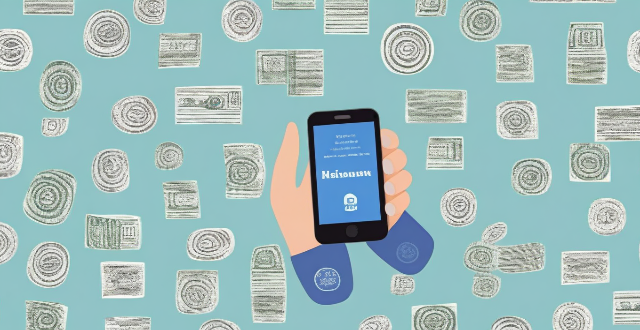The article discusses the advantages and disadvantages of using passwords and biometric authentication for securing a phone. Passwords offer complexity, control, and no technical issues but are prone to forgetfulness, social engineering attacks, and reusability. Biometric authentication provides convenience, uniqueness, and difficulty to replicate but may encounter technical issues, false acceptance/rejection rates, and privacy concerns. The best approach is to use a combination of both methods to enjoy the benefits of both while minimizing their drawbacks.

Is it safer to use a password or biometric authentication on my phone?
When it comes to securing your phone, both passwords and biometric authentication methods have their advantages and disadvantages. Let's explore the pros and cons of each option:
Passwords
Pros:
- Complexity: You can create complex and unique passwords that are difficult to guess or crack.
- Control: You have complete control over your password and can change it at any time without any external factors affecting it.
- No technical issues: Passwords do not rely on any specific hardware or software, so there is no risk of technical failures.
Cons:
- Forgetfulness: People tend to forget complex passwords, which can lead to lockouts and frustration.
- Vulnerability to social engineering attacks: If someone gains access to your password through phishing or other means, they can easily bypass your security.
- Reusability: If you use the same password across multiple accounts, a breach in one system can compromise all of them.
Biometric Authentication
Pros:
- Convenience: Biometric authentication is often more convenient than entering a password, as it requires less effort and time.
- Uniqueness: Biometric data is unique to each individual, making it more difficult for someone else to gain access to your device.
- Difficulty to replicate: Unlike passwords, biometric data such as fingerprints or facial recognition cannot be easily replicated or stolen.
Cons:
- Technical issues: Biometric authentication systems can fail due to hardware or software problems, such as dirty sensors or low battery levels.
- False acceptance/rejection rates: Biometric systems may occasionally mistake one person for another (false acceptance) or reject legitimate users (false rejection).
- Privacy concerns: Some people may be hesitant to use biometric authentication due to concerns about their personal data being stored or shared with third parties.
In conclusion, both passwords and biometric authentication have their strengths and weaknesses when it comes to securing your phone. The best approach is to use a combination of both methods, depending on your preferences and needs. For example, you can set up a strong password for your main account and use biometric authentication for unlocking your device or logging into certain apps. This way, you can enjoy the convenience of biometrics while still having the added security of a complex password.